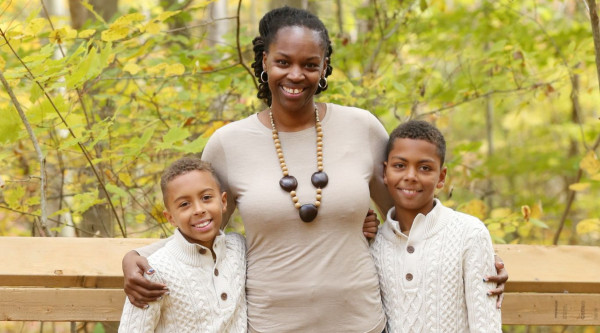I would plead, bargain, beg, and pray to be heard! But nothing worked! Their father, on the other hand, was always heard. He only spoke once and let me tell you, that’s all it took! That frustrated me more than anything else. So I asked him, “Why do they listen to you and not me?” This one question turned into a long and heated discussion – with some dirty looks, from me of course – but by the end of the conversation, I realized that a lot of what he was saying was true. Please, don’t tell him I said that!
I took a lot out of that conversation because it reminded me of the tools I utilized while working with children and youth in my career. I began to put my tools into practice and things began to change; it worked. These rug rats began to listen! It was great! I want to share with you how I made this happen. Here are my 5 Tips:
1.Say what you mean, mean what you say
Meaning what you say with your children makes them know you are serious. Children have an amazing skill to see through your words. The way you communicate is very important when speaking to them, so be aware of: your body language, tone of voice and eye contact. Children pick up more on these types of communication, rather than words. Make sure your nonverbal and verbal communication are congruent when talking to your children. Be clear and concise with your words, and most importantly, think before you speak. Don’t speak out of anger because that will make it more difficult to follow through with.
2. Set limits and boundaries
Children need appropriate limits and boundaries set for them. Not only in regards to your requests to clean their room, but also for their safety! Many parents are confused about setting limits and boundaries with their children because they want them to be “free to discover the world”. Well, setting limits and boundaries helps your children with self-discipline and self-control. These are skills that will build your child, as well as skills they will need to be successful in their future. This, in turn will help them to discover the world in a safe and healthy way. Again, be clear and concise about what the boundaries and limits are, so when they are being held accountable they understand why.
3. Follow through
Now that you have set appropriate limits, the next step is to follow through with it. This is usually the hardest part for parents… it sure was for me! What I needed to remember is that I set appropriate boundaries and limits in order to keep them safe, and if they didn’t follow through, they needed to be held accountable. Discipline is meant to teach your children, not hurt them. This is a powerful tool to have in your parenting tool box; however, it needs to be used properly. Put away the lectures, nagging and pleading! Focus on the boundaries and limits that you have set for them.
4. Listen to them
This is the easiest tip of all. If you want your kids to listen to you, you need to listen to them! As the parent, you need to lead by example. When you show your children that you are listening – even to the long, repetitive stories that they usually tell – you are showing them how to give and receive respect. This also helps build strong relationships between you and your children, which allows them to come to you for the big conversations and situations in the future!
5. Consistency
Being consistent with your children helps them listen to you! It makes them feel safe and secure. It makes their lives feel structured and predictable. When they know what to expect from you, they have the enhanced ability to think about their behaviour before making a poor decision. This is easier said than done! When you have to get things done and your children are either acting out or asking for something that they know they can’t have… all you want them to do is SHUT UP! That’s when consistency usually fails! No one ever said this job was easy… the best thing to do to stay consistent is to be one step ahead of your children. When you know what to expect before it happens, you are able to remain consistent.
Using these tips has helped me build a stronger relationship with my children. They are listening to me more which is making my life much easier. I am not saying that I don’t have my battles every now and then with my angels, but when that happens, I go back to these tips and they never fail.









